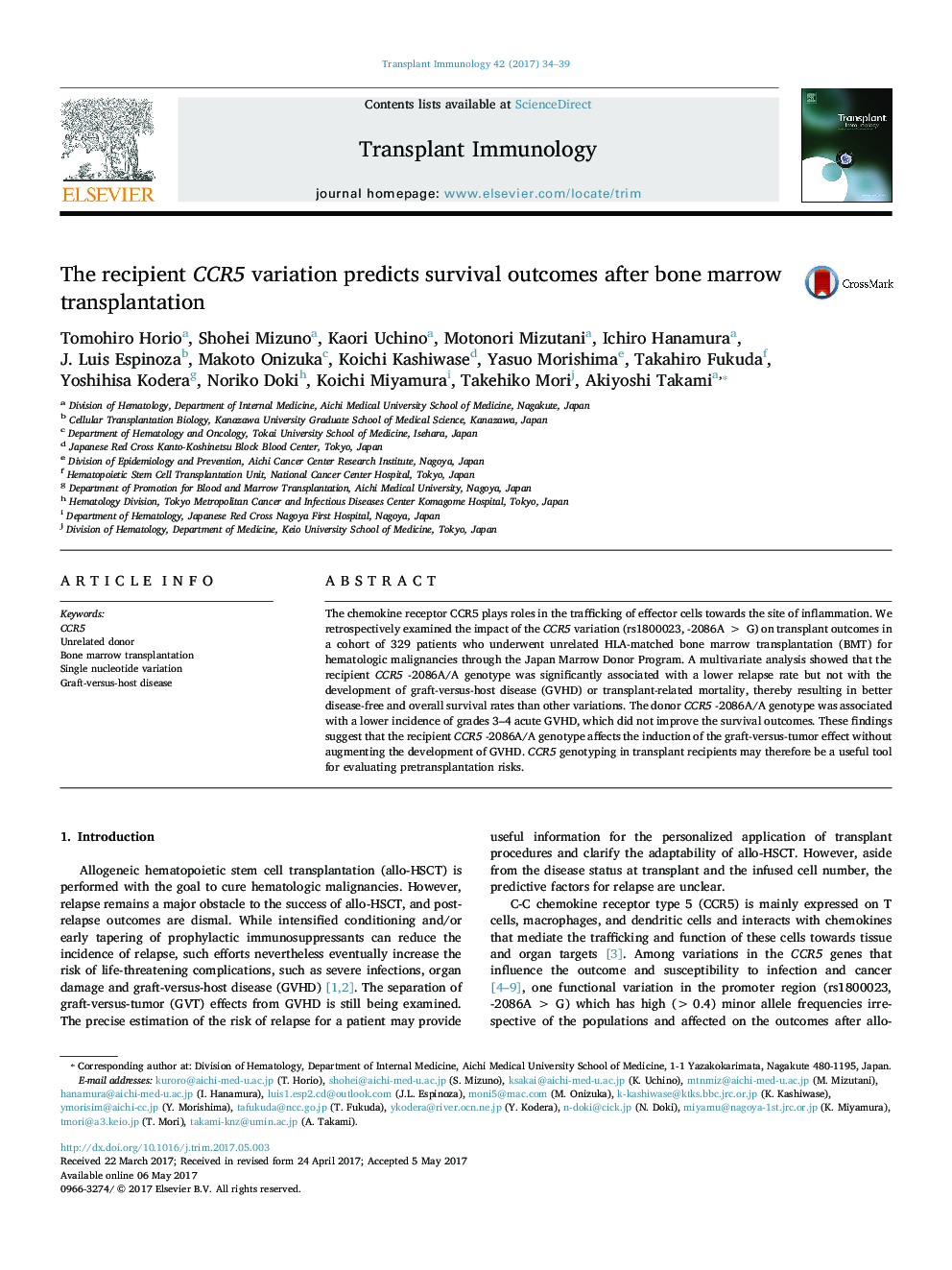| Article ID | Journal | Published Year | Pages | File Type |
|---|---|---|---|---|
| 5670451 | Transplant Immunology | 2017 | 6 Pages |
â¢The recipient CCR5 variation (rs1800023) predicts relapse without affecting the TRM after allogeneic BMT.â¢The recipient CCR5 variation thus predicts the survival outcomes after allogeneic BMT.
The chemokine receptor CCR5 plays roles in the trafficking of effector cells towards the site of inflammation. We retrospectively examined the impact of the CCR5 variation (rs1800023, -2086AÂ >Â G) on transplant outcomes in a cohort of 329 patients who underwent unrelated HLA-matched bone marrow transplantation (BMT) for hematologic malignancies through the Japan Marrow Donor Program. A multivariate analysis showed that the recipient CCR5 -2086A/A genotype was significantly associated with a lower relapse rate but not with the development of graft-versus-host disease (GVHD) or transplant-related mortality, thereby resulting in better disease-free and overall survival rates than other variations. The donor CCR5 -2086A/A genotype was associated with a lower incidence of grades 3-4 acute GVHD, which did not improve the survival outcomes. These findings suggest that the recipient CCR5 -2086A/A genotype affects the induction of the graft-versus-tumor effect without augmenting the development of GVHD. CCR5 genotyping in transplant recipients may therefore be a useful tool for evaluating pretransplantation risks.
